For better or for worse, Brexit is finally happening. The UK will leave the EU on Friday at midnight CET, with details on the future cooperation in research and innovation still to be decided.
To mark the event, Science|Business has put together a showcase of the strengths and some of the weaker points of UK’s research and innovation system, which also highlights the importance of scientific cooperation between EU and the soon-to-be non-member state.
1: The UK has eight of the world’s 100 best universities
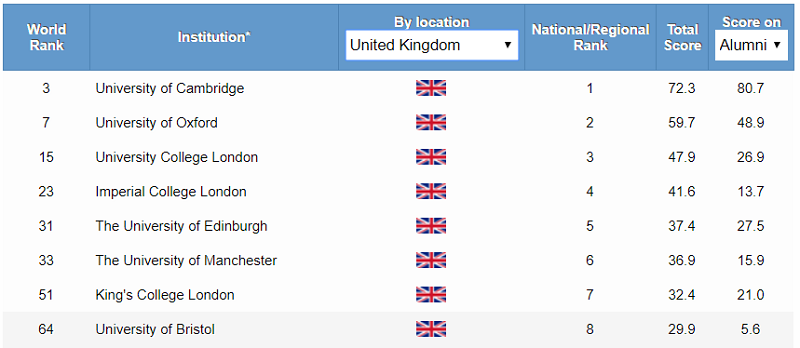
According to the Shanghai rankings, UK is home to some of the world’s best universities. In 2019, eight UK universities were ranked among the best 100 higher education institutions in the world.
2: UK tech venture capital exceeded expectations in 2019
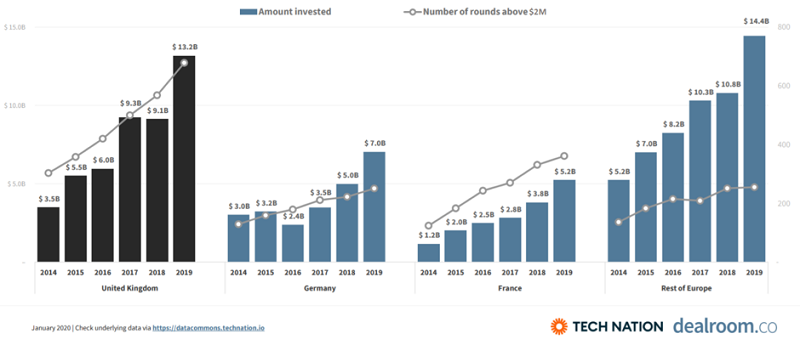 UK venture capital investment in tech companies surpassed $13 billion in 2019, outperforming Germany and France combined. According to data analysed by Tech Nation, venture capital going into tech companies based in the UK accounted for one third of total investment in Europe in 2019.
UK venture capital investment in tech companies surpassed $13 billion in 2019, outperforming Germany and France combined. According to data analysed by Tech Nation, venture capital going into tech companies based in the UK accounted for one third of total investment in Europe in 2019.
The Tech Nation report says that compared to the US, Germany, France and China, investment activity in the UK grew the most last year, partly because the UK has a wider mix of investors and received more investment from Asia and North America.
3: UK has more unicorn companies than any other EU country
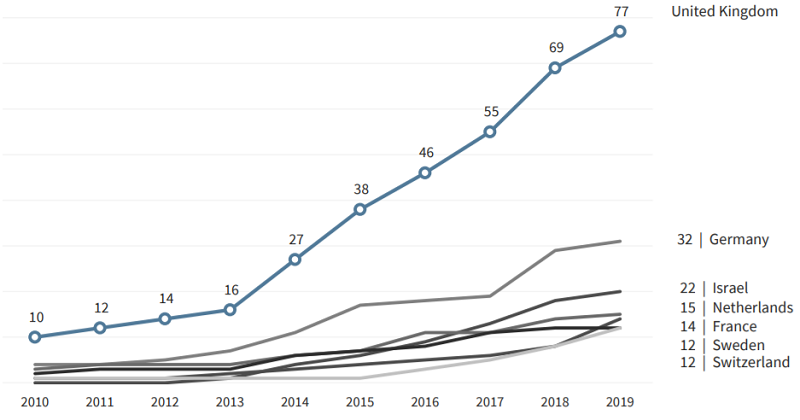
The UK continues to lead in Europe by the number of unicorns created. In 2010, it had 10 start-up companies valued at over $1 billion, but the number grew to 77 by 2019. Germany has 32 such companies.
According to the same report by Tech Nation, the UK created 8 new privately held start-ups valued at over $1 billion.
4: UK attracts more investment in advanced digital technologies than any other EU country
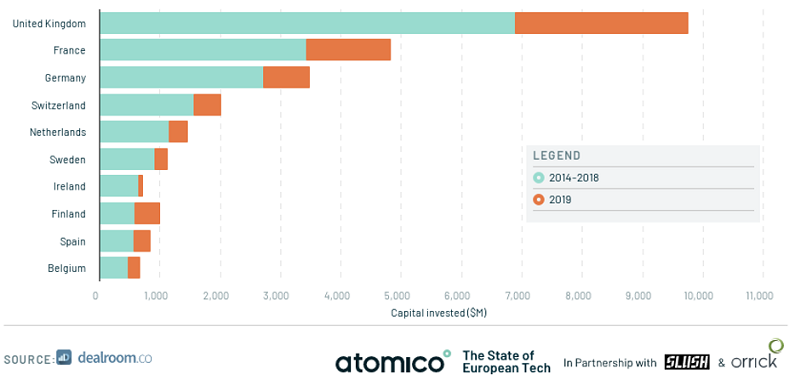
Caption: Capital invested ($M) in European advanced digital technology companies by country.
Research published by London-based venture capital firm Atomico shows the UK is Europe's leading destination for investors in advanced digital technologies, attracting $2.9 billion in 2019 and a total of nearly $10 billion since 2015. In 2019, companies in France and Germany attracted a combined $2 billion.
London is Europe's tech capital, with twice as many companies in the city having closed funding rounds since 2015 than Paris, in second place. Europe is home to more than 13,000 companies that raised capital from 2015 - 2019.
5: Government R&D spending is lower than EU average
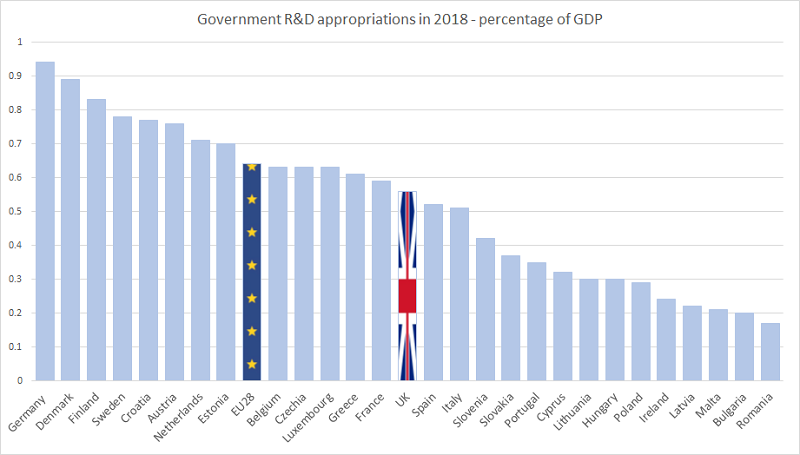
According to Eurostat, UK government spending on R&D is lower than the EU average. In 2018 it was less than 0.6 per cent of GDP.
6: Per capita, UK entities file fewer European patents than Switzerland
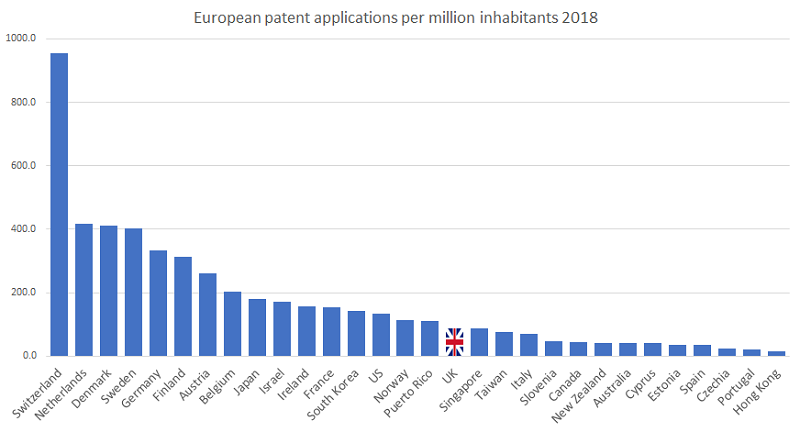
According to data from the European Patent Office (EPO), in 2018, UK companies filed a total of 5,736 European patents.
EPO records show UK companies file 88.1 patents per million inhabitants, a ratio lower than Switzerland, Netherlands, Denmark, Sweden and Germany.
Here is a ranking of top 10 EPO applicants from the UK:
- Rolls-Royce: 352 patents
- Unilever: 289
- BT: 166
- BAE Systems: 162
- GlaxoSmithKline: 153
- Johnson Matthey: 94
- Delphi Technologies IP: 71
- AstraZeneca: 69
- University of Oxford: 66
- Imagination Technologies: 64
7: EU data on co-authored scientific publications per million inhabitants puts the UK ahead of most other EU regions
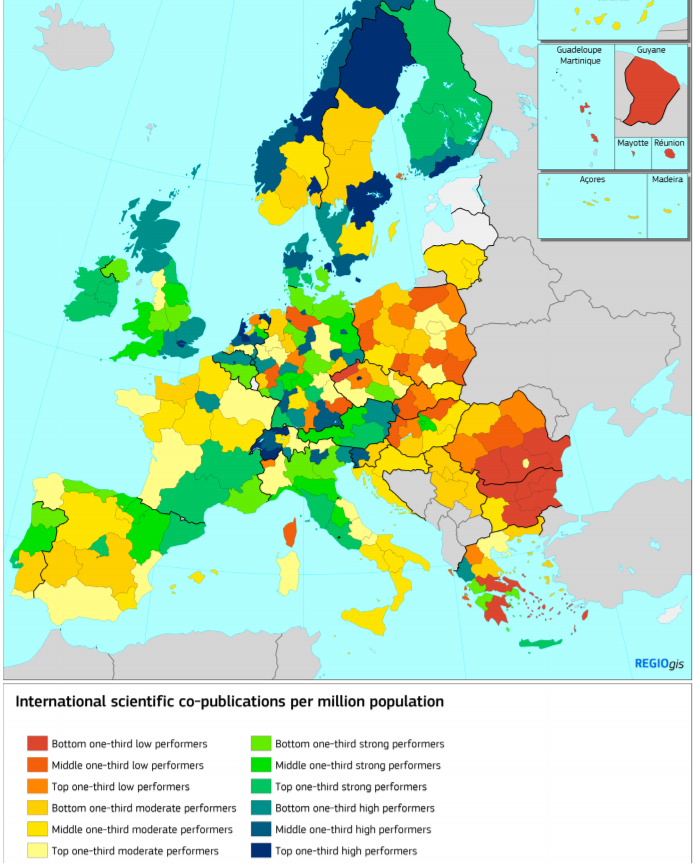
London, Scotland and the south east region of England are among Europe’s top performing regions in terms of the number of scientific publications authored with at least one co-author from abroad.
According to the 2019 Regional Innovation Scoreboard, UK regions are outperformed only by some regions in Switzerland, Germany, the Netherlands and Sweden.





 A unique international forum for public research organisations and companies to connect their external engagement with strategic interests around their R&D system.
A unique international forum for public research organisations and companies to connect their external engagement with strategic interests around their R&D system.